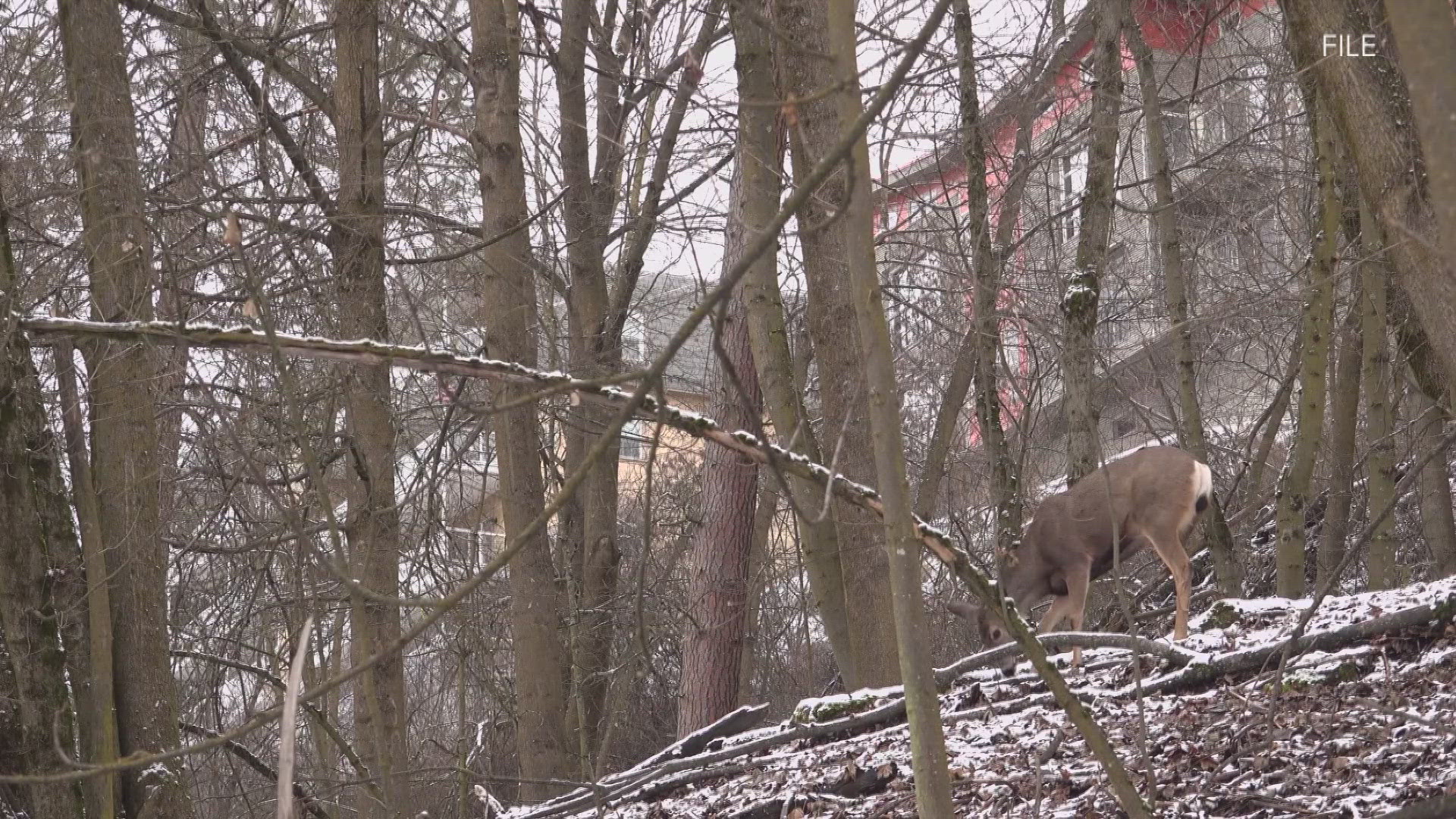SPOKANE, Wash. — There are new rules for some eastern Washington hunters this season, following the state's first detection of chronic wasting disease (CWD).
The Washington Department of Fish and Wildlife (WDFW) enacted several emergency rules to help prevent the spread of the disease after the case was confirmed in late July 2024. The infected sample came from a deer found dead in February in the Fairwood area of north Spokane County.
Most of the requirements are in three game management units near the detection site: 124 Mount Spokane, 127 Mica Peak, and 130 Cheney.
Hunters and salvagers in those areas will be required to send in samples of any deer, elk, or moose.
"Either submit the whole head of the animal or extract the lymph nodes at the base of the skull," said Donny Martorello, Chief of WDFW's Wildlife Science Division.
It will also be illegal, with the start of the state's archery season in September, to bait the animals using scent or food for hunting.
Martorello said this is to reduce the spread of the disease.
"Anything we can to reduce drawing those animals together," he said.
Another rule impacts most of eastern Washington, the 100 series GMUs that make up Region 1.
"Carcasses or the bones from any deer, elk, or moose derived from any 100 series GMUs stay in those GMUs," Martorello said. "They cannot transport through or exit."
The emergency rule changes relating to CWD are as follows:
- Baiting - Effective September 1, 2024, at in-game management units (GMUs) 124, 127 and 130 it is unlawful to hunt for deer, elk and moose using any type of bait placed, exposed, deposited, distributed, scattered or otherwise used for the purpose of attracting deer, elk or moose with the intent to hunt them
- Natural or synthetic scents that contain or are derived from cervid urine and glandular extracts are also prohibited.
- Transport restrictions of dead wildlife - Effective August 23, 2024, it is illegal to transport deer, elk or moose, or parts thereof, taken from within the 100 series GMUs in areas that require a Washington state hunting license, to other areas of Washington state.
- This excludes meat that has been deboned in the state or province where it was harvested and is imported as boned-out meat or meat that has been deboned within 100 series GMUs and is transported as boned-out meat to other areas of the state.
- Mandatory CWD testing for salvaged deer and elk – As of August 23, 2024, anyone who salvages a deer or elk in the CWD initial response area of GMUs 124, 127 and 130 must submit the whole head with at least three inches of the neck attached, or extracted retropharyngeal lymph nodes at the base of the skull to WDFW for chronic wasting disease sampling within three days of receiving a salvage permit.
- Mandatory reporting of hunting activity - Effective September 1, 2024, successful deer, elk and moose hunters in GMUs 124, 127 and 130 are required to submit the whole head of a harvested animal with at least three inches of the neck attached or extracted retropharyngeal lymph nodes to WDFW for CWD sampling within three days of harvesting.
The required samples from animals can be submitted in person at the WDFW Colville District Office, the Kalispel Natural Resources Department building in Cusick and at the Kalispel RV Resort in Cusick.
Samples can also be mailed to the WDFW, but must by properly extracted and packaged.
For detailed information on how to submit samples, visit the WDFW web page on the CWD surveillance program.
CWD is a fatal illness of deer, elk, moose and caribou caused by mutated proteins, or prions. Those an be spread between animals through feces, saliva and urine.
You can see the full changes at WDFW’s Emergency rule change web page.
The WDFW says they will propose similar permanent rules for the Washington Fish and Wildlife Commission to consider soon.
In Idaho, Fish and Game are getting ready to host a surveillance hunt for Chronic Wasting Disease after the disease was detected in Boundary County this summer.
"We're very concerned about it," Carson Watkins, regional supervisor for Idaho Fish and Game's Panhandle Region, said of the disease.
The Boundary County hunt is in a small area of Unit 1, open only to 300 hunters who bought special permits. IDFG hopes to get 200 samples during the nine-day hunt to help track the disease.
"The purpose of this is really to get hunter feedback on the extent of the disease in the landscape up there, what its distribution is right now and importantly the prevalence rate," Watkins said.

